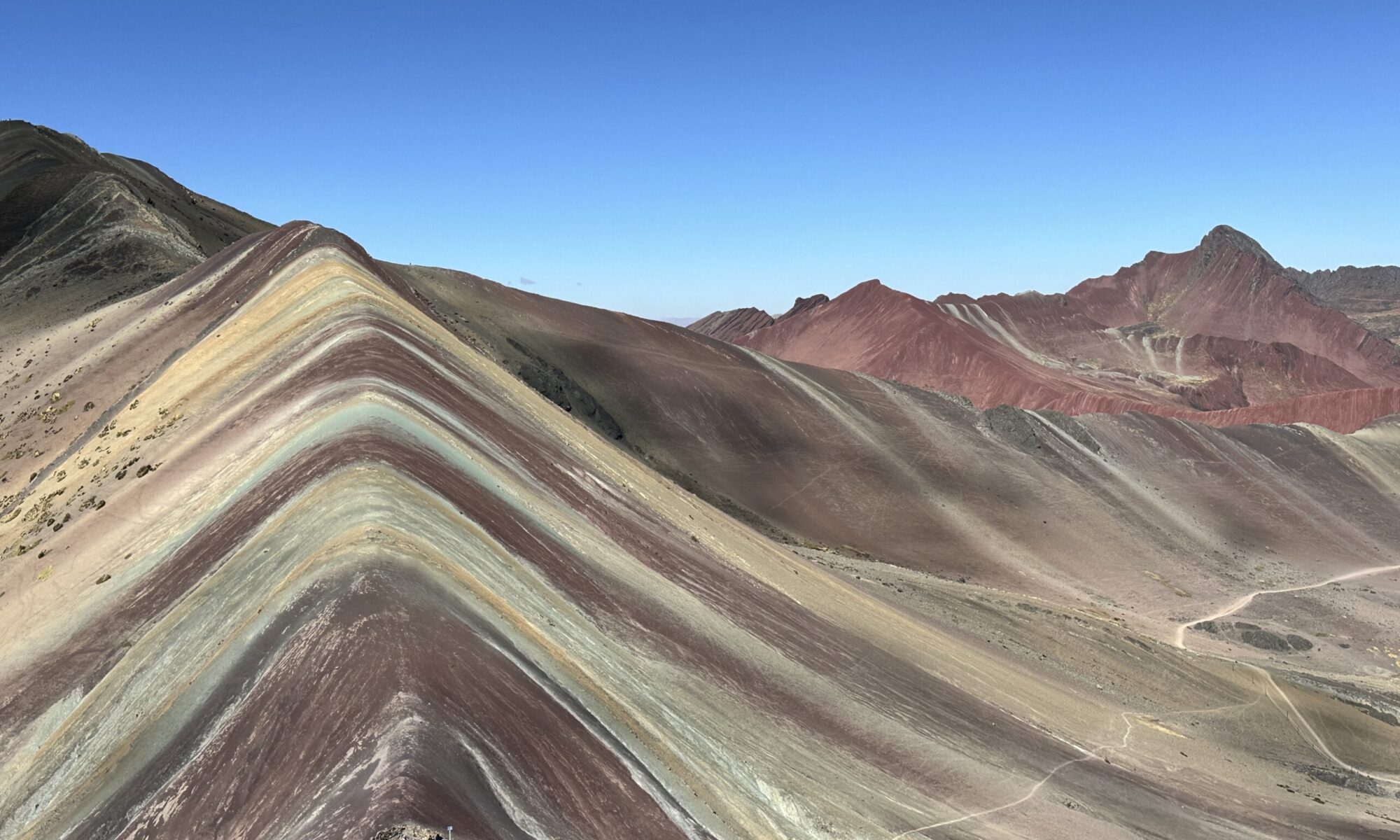
Much to the dismay of my teachers, my parents pulled me from classes for the weeks between US Thanksgiving and Christmas my freshman year of high school. My dad had been asked to serve as company representative on a 3-wek expedition to the Falkland Island and Antarctica. Part of the deal was, my mom and I could tag along. My mom contacted my teachers, met with them all and, after receiving several offers from them to tutor me, or carry our luggage, we set off on an epic trip to Rio de Janeiro where we would meet the ship.
Our itinerary was supposed to include Buenos Aires, the Falklands, and down to the Antarctic Peninsula, But this was November 1981 so Argentina wouldn’t let us land, so we enjoyed 2 provisioning days in Montevideo Uruguay instead. While I was saddened to not imagine what it was like to hear Eva Peron’s immortal speech from La Casa Rosada, Montevideo was a warm, welcoming city rich in culture and history. But let’s be fair, we weren’t on a cruise to Uruguay, we had our bearings set on points south.
Our days in the Falklands were wonderful. We met locals, enjoyed coastal walks through Moorish boggy landscapes, and got our first immersive penguin encounters. The environment was reminiscent of Scotland, only with the endless South Atlantic stretching out in every direction. Our time in the islands became even more interesting when, a scant 5 months later, Argentina invaded the Falklands in an effort to kick Great Britain out of their strategic provisioning port on the edge of the last continent.

After 4 days sailing around the islands, we pointed the ship south into the vast Drake Passage. This stretch of water, where the Atlantic and Pacific wrestle for oceanic dominance, is notorious for adventure. The waters will either be calm as glass or you’ll endure several days of breakers spraying freezing salt water onto the upper deck windows. Our south-bound crossing was several days of being tossed like a tin can in a hurricane. We huddled inside, listening to lectures from our naturalist guides, playing cards, and trying not to get seasick.



Then early one morning (like 2am early), our Captain came over the ship intercom. Using his strong (better word) German accent, he commanded everyone to get on deck. Now! As we wandered through the halls in our pajamas, parkas tossed haphazard over and knit caps covering our bed hair, we walked on deck. Sometime after we’d all gone to bed, we sailed out of the tempest and into a sheltered volcanic island. There in the crisp midnight sun, crystal blue water lapped restlessly onto black sand, as a brilliant blue sky welcomed us to the end of the earth. Deception Island was our first stop in an amazing week of travel around the Antarctic Peninsula.
During that week, we visited several scientific research stations. I practiced my 9th grade Spanish on researchers from Chile and Argentina. I gazed in wonder at the first Soviets I had ever met at a Soviet Research Station. I met a group of Polish researchers who were very happy to be safely working in Antarctica while the Solidarity Movement ripped their homeland to pieces. We shook hands with American Researchers and brought them letters from home. We delivered supplies to all these outposts. In Antarctica, you have to work together, especially in those days when supply ships were few and far between.
We saw more penguins and seals than you could count. We watch massive Albatross glide above the waters. We chased whales, watching them play in the summer waters. One day, our Captain put out a ship to ship call to see if anyone would answer. The radio range was over 250 miles. No human voice returned our greeting. We were alone under the midnight sun.
These were the early days of Antarctic Tourism. Between the tiny handful of companies cleared to bring passengers onto the continent, prospective tourists had 5 or 6 possible trips a season. At a full ship of 175-200, fewer than 2,000 tourists a year would visit. Today, xyz companies ferry over xxx passengers onto landings.

Today I listen to travel programs about travelling to Antarctica. Gone are the days of delivering the mail and food to research stations. You can still set foot on the seventh continent and walk among penguins. You’ll explore the fjords chocked with massive icebergs that glide past soaring coastal mountains. You can even take what is euphemistically called a “scenic cruise” where you’ll never step foot on land. It’s still an experience not to be missed. But it’s a very different adventure than the experience I had as a teenager. I’ve traveled all over the world. Sailing in the shadow of Amundsen, Shackleton, de Gerlache, and the hundreds of others who charted the ever-changing coast lines of the edge of the earth was one place I’ll never forget.

